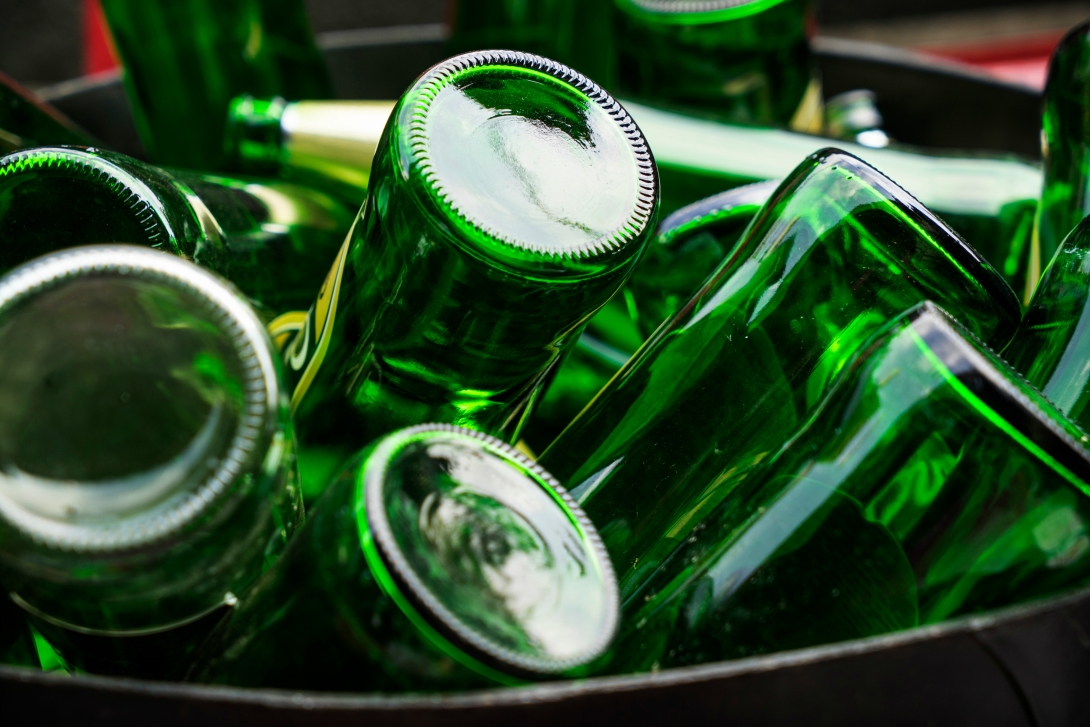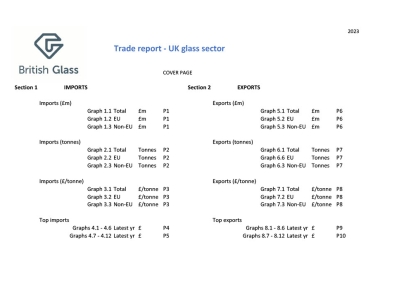
Waste industry experts are warning that facilities for returning glass bottles in retail stores will not be able to cope with the huge rise in numbers at peak times such as Christmas, Easter and during hot summers.
With instore reverse vending machines (RVMs) designed to accommodate just 60kg of glass (about 220 whole bottles), the size of facility is likely to be insufficient and woefully inadequate during seasonal peak times when consumption is high and volumes of glass bottles recycled can surge by up to 60%¹.
Another problem is that glass jars, which are not accepted in the Deposit Return Scheme and are a highly valuable source of clear glass for recycling, could simply be lost to landfill. Dr Nick Kirk, Technical Director of British Glass explains: “Under the proposed new system, household glass collections could become a thing of the past. Jars make up around 15-20% of a typical kerbside box and without glass bottles, it is likely that they will not provide a sufficient incentive for local authorities to continue to collect”.
For householders currently without a kerbside collection, two trips will be needed – one to the bottle bank for jars and another to the reverse vending machine for bottles. With a quarter² of Scottish consumers already saying they won’t be returning their glass bottles to collect the deposit; the concern is that both bottles and jars will go straight into the general waste bin instead.
The problem is set to be exacerbated at this time of year when many popular Christmas dinner table staples such as cranberry sauce, mustards, chutneys, relishes and other condiments are traditionally bought in glass jars. “With widespread concerns over plastic packaging, glass jars have been making a welcome comeback. It would be a dreadful irony if those 100% recyclable glass jars were to end up in the bin and ultimately land-filled, due to a poorly designed Deposit Return Scheme” says Dr Kirk.
Any decrease in the amount of clear glass in the system is a serious worry for the glass reprocessing industry too. Michael Durr, Managing Director of Glass Recycling UK explains “The majority of glass packaging processing plants in the UK are now designed to process a specially configured mix of glass: clear, green and amber. If there is less of any one of these coming through, such as clear glass because kerbside or bottle banks become financially unviable, it will significantly increase the cost of processing the remaining glass in the system.
British Glass and an extensive alliance of waste management companies and drinks industry experts are urging the Scottish Government to rethink the inclusion of glass in the forthcoming Deposit Return Scheme. Dr Kirk comments: “The potential collapse of kerbside recycling for glass has other unintended environmental and social consequences too. These include increasing volumes of plastic packaging and CO2 emissions being a very real possibility resulting from the current proposition. We are strongly saying ‘keep glass out, there is a better way’ and sharing our evidence with policy-makers to stop this potential disaster”.
The better way in question is the forthcoming UK-wide polluter pays scheme (known as Extended Producer Responsibility or EPR). EPR is set to deliver a higher glass recycling rate and save nearly double the CO2 emissions at a fraction of the cost or upheaval.
“The EPR polluter pays scheme is already in the pipeline. It can separate out and collect more clear glass, which the deposit return scheme cannot. It will also save around an extra 17,000 tonnes of CO2 annually vs 9,335 tonnes of CO2³ if glass is included in the deposit return scheme” says Dr Kirk. “We support a deposit return scheme that significantly increases recycling and the reuse of resources, but under existing plans, this is not the case for glass”.
British Glass continues to urge the Scottish Government to remove glass from the deposit return scheme implementation process, and instead to consider the evidence showing an EPR is a much more efficient, sustainable and cost-effective way forward for glass recovery.


